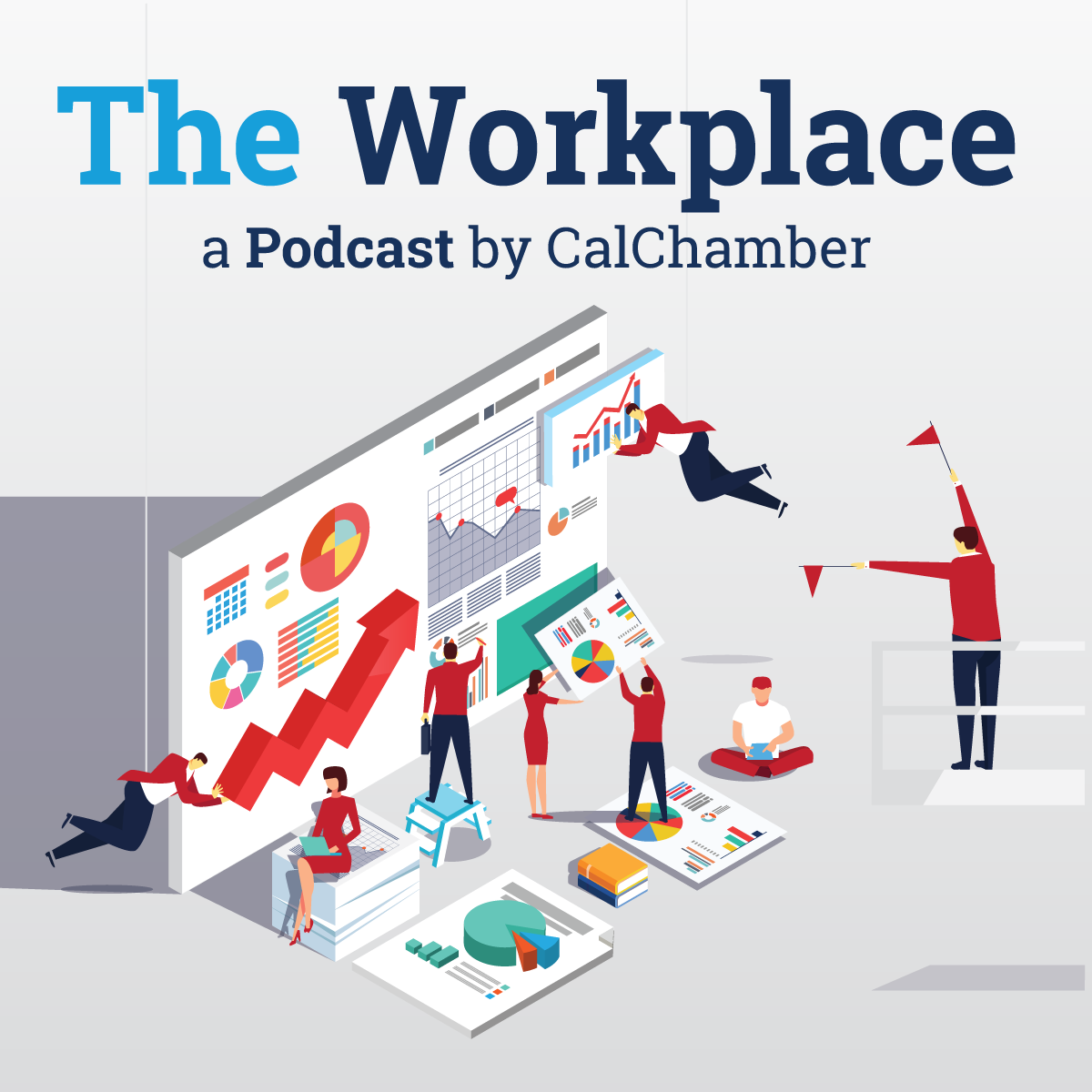
In Episode 192 of The Workplace podcast, CalChamber Associate General Counsel Matthew Roberts is joined by CalChamber Senior Policy Advocate Ashley Hoffman and Chris Micheli, partner at Snodgrass & Micheli, LLC, to review some of the key employment law-related bills being discussed this legislative session.
Key Bills
Criminal Background Checks: SB 1345
As the legislative session heats up in California, employers and policymakers are gearing up for potential changes in the employment landscape.
The first bill discussed on the podcast is SB 1345 (Smallwood-Cuevas; D-Los Angeles), which aims to restrict the use of criminal background checks by employers. This bill seeks to impose stringent requirements on when employers can request a background check, limiting it to instances of “business necessity,” such as compliance with current law or if the employer wants to protect against incidents of workplace harassment, violence or theft.
Hoffman points out that the narrowness of the “business necessity” definition means that, if passed, very few employers will be able to pull a background check on prospective employees.
Freelance Worker Protection: SB 988
Last year, a Los Angeles local ordinance took effect that provided certain financial and legal protections for “freelance workers,” Roberts says. The ordinance seems to have attracted enough attention at the state level and a similar bill has been introduced in the legislature.
SB 988 (Wiener; D-San Francisco), Micheli explains, would establish The Freelance Worker Protection Act, which would provide protections for independent contractors who are hired to provide certain professional services for at least $250 or more. State and federal government are exempted from the bill, which means anyone working in the private sector would be affected by this law.
Expansion of Leave Rights: AB 2499
The third bill discussed is AB 2499 (Schiavo; D-Chatsworth). This bill proposes an expansion of leave rights for employees, particularly related to jury duty service and crime victim leave.
Hoffman explains that the bill lowers the threshold for leave eligibility from 25 employees to just one and broadens the scope of covered situations. For example, under this bill, an employee with a family member who has been a victim may take time off to care for that family member or take time off to assist them with seeking civil, legal or criminal legal services.
COVID-19 Regulations: AB 3106
The next bill discussed is AB 3106 (Schiavo; D-Chatsworth). The bill reintroduces exclusion periods for employees diagnosed with COVID-19, Micheli says.
Under the bill, three conditions must be met before an employee with COVID-19 may return to work:
• At least 24 hours have passed since a fever of 100.4 degrees or higher, without the use of fever-reducing medication;
• Symptoms have improved; and
• At least 10 days have passed since the COVID-19 symptoms first appeared.
Additionally, the bill states that the California Division of Occupational Safety and Health (Cal/OSHA) Standards Board is required to adopt a new standard that extends protections in the bill to diseases that are covered by any permanent disease standards that have been adopted by the Cal/OSHA Standards Board.
Regulation of Temporary Workers: AB 2741
The use of temporary or contracted labor has received attention over the last couple of years, including a recent expansion to California pay data reporting rules for employers with 100 or more contracted workers, Roberts says. Now legislators have introduced AB 2741 (Haney; D-San Francisco), which seeks to place even more rules on employers and staffing agencies that place contracted workers.
Hoffman says that the bill contains many provisions and it broadly defines what a “labor contractor” is. Under the bill, a labor contractor would include anyone who supplies workers to a client, such as a staffing agency, but also someone like a farm labor contractor who is employing workers who are working at different sites, because the needs of agricultural work fluctuate.
The labor contractor will need to disclose how much they are being paid by the client, as compared to how much the worker is earning. The client must offer temporary workers direct employment when they have worked for a “long-term and continuous basis,” which is not defined in the bill.
Moreover, a labor contractor cannot place a worker where there is a strike or lockout, or other “labor trouble,” without providing certain notice.
Protecting Tips for Restaurant Employees: AB 3143
Lastly, AB 3143 (Lowenthal; D-Long Beach) focuses on protecting gratuities for restaurant employees, prohibiting employers from withholding tips left for employees.
While there are a lot of industries where workers may receive gratuities, AB 3143 is limited specifically to restaurants. However, the bill does not define what a “restaurant” is, so the bill could benefit from additional clarity, Micheli says.

